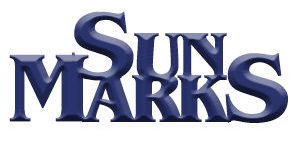Jeff stood in the cavern of the emptied building, surrounded by nothing but the vast concrete floor, concrete pillars holding up the ceiling, and gloom. The chill he felt, he was sure, was his imagination. He hadn’t felt it the last time he’d been in this building—at least, not before hearing that eerie voice…
He watched as his friend Rachel hooked up the gear the two of them had just lugged up from Wadsworth Street. They’d made four trips from her car parked on the street, across the first floor to the stairs at the back, then up the stairs. The stuff wasn’t heavy, but bulky and awkward, and it had taken them long enough that Jeff thought to put additional money in the parking app.
Rachel dashed around, long red hair in a pony tail, flashlight in her teeth, connecting instruments together and to the fuel cell power packs she’d brought from her lab. She’d enlisted Jeff as her lab assistant—his lack of competence in physics notwithstanding—not only because he was only one of two people to have seen whatever was that might or might not be haunting this building, but because, as she’d told him, she didn’t particularly want anyone from her lab finding out about this unorthodox and unauthorized “field test.”
“I’ve had this wacky idea—if consciousness is a quantum phenomenon, then, maybe in the course of living, we naturally entangle some of the particles in our environment. And then maybe some echo might persist in those particles. And I’ve been wanting to try something like this…”
“I’m the one here who thinks he’d seen something,” Jeff said, “And I think this is a little nuts. Don’t ghost-hunters usually just use infrared cameras?” A few days before, Jeff had been brought to this two-story building in Washington Heights—a building that once housed a restaurant and pool hall and bar owned by the grandfather who’d died before he’d been born—and he thought he’d seen something.
“I’m not hunting ghosts,” Rachel said. “I’m hunting entangled particles. Logical speculation from the work Carl and I’ve done together.” Carl, her fiancé, was a neuroscientist at NYU. Rachel specialized in quantum information and quantum theories of consciousness. She and Carl had met at a conference when he suggested to her that he might have a way of trying to experimentally test her ideas.
“What we do, with live subjects, anyway,” Rachel said, “is we try to entangle photons and electrons from the subjects’ brains, with electrons in the detector, and then measure what happens in the detector.”
She was setting up the laser emitters on the back wall, and the detector about three meters away. Trying to get where Jeff had thought he’d seen something, in the part of the building that used to be the restaurant/bar’s office. The office where the World War II meat rations were circumvented. Where payoffs changed hands, where shakedowns were planned. Where numbers games were run.
Jeff worked as an Assistant Professor in Media Studies, hoping to soon be an Associate Professor. He’d never won a fistfight. He’d get guilty about the possibility of leaving out a citation. A far cry from his mother’s father, who’d occupied that office.
“So, the first time we set this up,” she went on, “Our jaws dropped when the detector started spitting out things that looked like EEGs. And then we went another step and tried to image, and got a few glimmers of things that looked like PET scans. If you squinted at them the right way, anyway.”
Which was also the work that had gotten her tenure.
“Fine,” Jeff said. “The part the boggles me is why you think shining a few lasers in an empty room is worth anything.”
“I’ve had this wacky idea—if consciousness is a quantum phenomenon, then, maybe in the course of living, we naturally entangle some of the particles in our environment. And then maybe some echo might persist in those particles. And I’ve been wanting to try something like this… And if we don’t get anything up here, maybe we can also try the spot where your girlfriend said she thought she saw something.”
“She’s not my ‘girlfriend,’” Jeff said. There, in the dark, his face got hot. Rachel was referring to Elana Roth, the woman who had first brought him to this spot. In the last week, he couldn’t stop thinking about her. Probably an artifact of the adrenaline from that night, he thought. But there it was, anyway.
“Not yet, anyway,” Rachel said. “This would count as, what, your second date? You’re going to see her again?”
He didn’t want to answer her. Instead, he changed the subject: “And where are you going to try to publish this little test?” he asked.
“Crackpot Science Reviews,” she said. “Or maybe Nature Paranormal.”
“Those—um, those don’t actually exist, do they?”
She shot him a look.
“Well, what do I know about physics journals?” he said. For all he knew, there could be a Crackpot Review.
I mean, someone had had someplace to publish the first string theory papers… he thought.
“OK,” she said. “Let’s kill the lights—use the night vision glasses—stand over there, and see if you can get his attention.”
Jeff put the glasses on and turned them on. He stood where he thought maybe the office door used to be, and said, “Grandpa? Jack? Jack Marcus?”
And he stood there for five minutes, trying to see another apparition, but he thought maybe the night vision goggles might have been in the way. Nothing apparent to Jeff happened.
Finally, Rachel said, “OK—I think we’ve got as much as we’re going to get. I’m going to turn on the lights—take off the goggles—and let’s pack up. I’ll take a look at the tape and see if anything other than some mice scurrying by happened.”
—
Three Weeks Before
It all began with an unexpected visit. “Are you Jeff Bernstein?” The woman stood in the office doorway. Tall, slender. Hazel eyes, light brown wavy hair tied back. She wore calf-high boots, an A-line brown skirt, a silk blouse, and the air of authority. Jeff thought he recognized her, and had a guess as to who she was.
“That’s what it says on the door,” he said. “And you are?”
“Elana Roth,” she said. She put the jacket she was carrying over the back of his guest chair.
I was right, he thought. I did know who she is. He said, “Brooklyn Heights. City Council. What brings you all the way up here to Columbia?”
“May I sit down?” she asked, nodding slightly at the two chairs in front of his desk.
“Oh, sure,” he said. He was still sufficiently surprised that someone like her would have come all the way up to Morningside Heights—instead of simply calling or emailing. Jeff taught in the Journalism school, as an Assistant Professor in Media and Politics. Every other year, he taught a class on New York City politics—since the major city elections took place on off-years.
She sat. “I wanted to come up to see you personally, because I wanted to discuss something personal, and off-the-record. Plus, I’m on my way uptown, and thought I might take a chance, stop in, and see if you were in.”
Personal? He thought. Odd, since they’d never met before. “If you’re looking for some kind of advice about something that could affect your re-election, I should mention that I can’t take on any consulting at this time—due to my faculty position here.”
“It’s not that,” she said. “Well, there’s an outside possibility that someone could… Anyway, also, I’m not just running for re-election, I’m running for City Council Chair.”
“Should I know that?”
“Maybe you should—it’s not really announced officially, but it’s also not been really a secret. Anyway, I wanted to meet you because for a long time, I’ve had an interest in genealogy. And it looks like my grandfather and your grandfather crossed paths in the 1940s.”
“Which grandfather?” he asked.
“Jacob Marcus—I think he was known as Big Jack?”
Jeff nodded. His mother’s father—the one that died before his parents had even met. The one for which he was named. “I can see why you might not want to discuss that in writing,” he said.
She smiled, and nodded. “My grandfather was Abe Roth. They, um, ‘worked together’ in Washington Heights and the Grand Concourse in the 40s and early 50s. Anyway, it wasn’t only that I was looking into my tree, but, being in City Hall, I also learned that one of their um, common interests—a building on 181st and Wadsworth—is going to be demolished in a few months. Seems someone wants to build a big new movie theater there.”
“Why, what’s there now?”
“A pair of defunct department stores,” she said. “At the time, though, it was a restaurant on the street level, with a pool hall over it. Thought you might be interested to see it before it disappears.”
So some woman just shows up at your office?” Rachel asked. “Who was this she?”
Jeff looked at her over his chicken and broccoli. They met for dinner at the Chinese restaurant across Broadway from the campus.
Even though they were in very different departments, Rachel had been one of the first other faculty members to really welcome Jeff when he first got to campus. She’d arrived at Columbia the year before Jeff. At the end of the last semester, she’d made tenure—she’d been promoted to Associate Professor in the Physics department, where she specialized in quantum mechanics and quantum information—entanglement—also, she was doing work on quantum theories of consciousness.
Jeff, in theory, would be up for tenure this year—after the close of the semester in May.
When, coincidentally, Rachel would be getting married. Not a surprise, really, Jeff thought, that she’d had it so easy finding someone. She had bright green eyes, a ready smile, and a quick laugh. Plus, as a woman working in physics, the numbers were in her favor.
“She’s a City Councilmember from Brooklyn. Not sure, really, exactly, what her story is. Running for Speaker.”
“You think there’s more to it—more than simply what she said?” Rachel asked.
“It’s just odd,” Jeff said. “For someone to come all the way up in person to see me, about a minor thing like our grandfathers, when she’s never even met me before, and without any reason whatsoever to think that I might have any interest in genealogy or in a grandparent who died before my parents even met.”
“Well, when you put it that way…” Rachel toyed with a crab leg. “Or maybe she saw that profile of you that your friend Stu posted on his blog. That ‘under-the-radar political bachelors’ piece.”
“Actually, maybe, but not in the way you mean,” Jeff said. “That is, rather, maybe that’s how she found me on the web.” He speared a broccoli stalk and bit the head off.
“What’s she look like?” Rachel asked.
Jeff almost gagged on the broccoli. “What?”
“What did she look like? I’m guessing that she must be around our age, give or take, if your grandparents were contemporaries.”
“She was tall,” Jeff said, shrugging.
“‘Tall’. Right. You’re going to make me Google her, aren’t you? She’s a public figure, there’s got to be a picture on the web somewhere—probably her campaign site.” Rachel reached for the tablet computer she had in her bag.
“Oh, come on,” Jeff said. “Is that necessary?”
“I’m going to find out one way or the other,” she said. “You might as well tell me.”
“OK, fine. Apart from being tall, she had hazel eyes and dark hair. That enough?”
“She single?”
“Almost certainly not.”
Rachel leaned across the table. She narrowed her eyes and peered at Jeff. “Why do you say that?”
“Because. She’s attractive and she seems smart. And this is New York. So, ergo, she can’t be single.”
Rachel rolled her eyes. “Keep thinking like that,” she said, “and you’re sure not to have a date for the wedding.”




